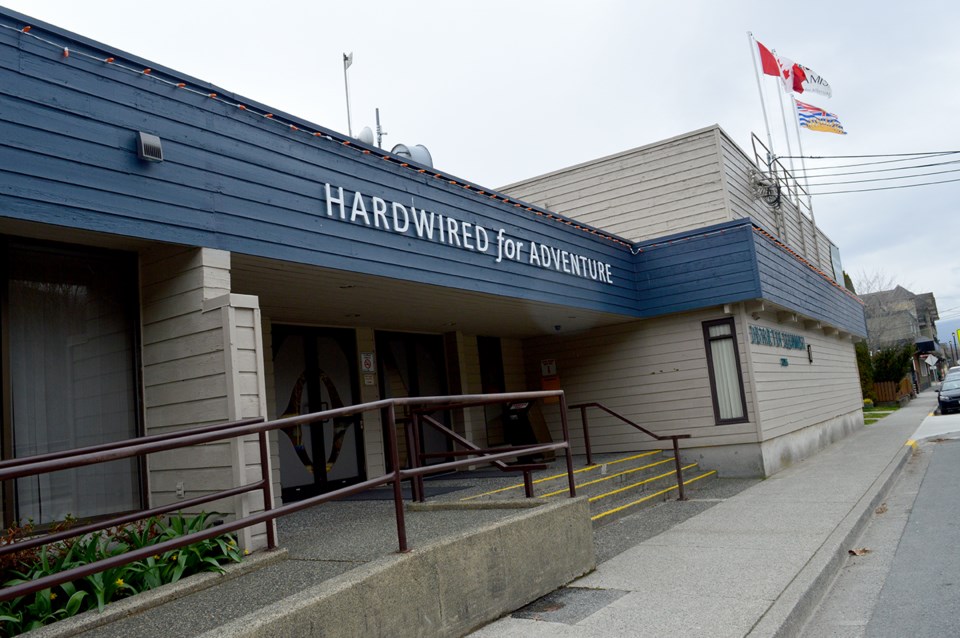It is budget time again at muni hall.
So far, this year's draft budget suggests that Squamish will need to increase its net tax revenue by roughly 3.2 per cent in order for the town to pay its bills.
Coun. Doug Race said that this was a "remarkably low" figure to start with.
"That does not necessarily equate to a tax bill impact," said chief financial officer Christine Mathews. "It will have some impact obviously, but it won't necessarily be the percentages we're showing you today."
District staff emphasized the required revenue increase may not necessarily translate to a tax hike of the same amount. Different types of properties will be subject to different rates. For example, residents could end up paying less while commercial pays more, and vice-versa.
These figures are also subject to change, as council will be reworking them in the coming weeks.
The Jan. 22 meeting was also an opportunity for councillors to debate what items they thought should be included or excluded in the budget.
The item that appeared to draw the most back and forth was a one-year staff position regarding climate change, which is anticipated to cost about $47,000.
The climate change staffer would take the lead on developing ways for the community to cut down on greenhouse gas emissions.
"When you see these reports that we have to decrease our carbon pollution by 45 per cent by 2030, that's...11 years, " said Mayor Karen Elliott.
She was referring to a recently-released UN report that predicts catastrophic climate change, should carbon emissions continue to go unchecked.
"If we don't act this year, we're not doing our job. Like, we are one of those communities that is highly impacted by climate change. Our infrastructure. Our diking. We have so many assets that would be affected... we'd have to relocate a huge portion of our community. So, I would passionately argue for somehow getting this piece of work done this year to give us longer runway to implementing changes."
This was also a point that Elliott made days later in annual mayor's lunch with the Chamber of Commerce.
However, during the Jan. 22 council meeting, this was met with a challenge from Coun. Eric Andersen.
"I'm not in support of hiring a staff person," said Andersen. "I just don't see that that's going to bring the practical initiatives that will really deliver."
Economic development can also be a climate action initiative, he said.
"Building materials — we never discuss this. We're filling up our belly with the most climate-action unfriendly material — concrete — and nobody's talking about it," said Andersen. "We're having hundreds of tractor trailer units on the highway when we could be barging. That's 100 tractor-trailer units per barge."
He said instead of hiring a new staffer, council should improve local dialogue about climate change.
"I may sound like a redneck — I'm just trying to suggest there are practical ways of trying to see the forest for the trees, and I don't think we do that enough," Andersen said.
Elliott then wondered who would be leading the way on climate change initiatives and dialogue, and Andersen responded that business, industry and community organizations could take the lead.
"I would rather see us fund dialogue than a staff position," Andersen said.
He also suggested that having Quest University students do the research on the matter could be a cost-effective alternative to hiring another District staffer.
There were a slew of other items that councillors requested to have put in the budget, or at least have them considered.
Andersen wanted more money spent on the Marine Action Strategy working group.
"I'm concerned that we're allocating far too little for the marine strategy, considering the amount of work and the pressures that are before us in that realm," he said. "$3,000 is too little."
He advocated for having $10,000 put towards that item, which he said was the amount promised in last year's financial plan.
Broadly speaking, the Marine Action Strategy provides a blueprint for the District to deal with waterfront issues, such as marine traffic, derelict vessels, and development, among other things.
Race requested to put in $200,000 for paving. Recently, the District received a report that said about 21 per cent of the town's roads are in rough condition.
He also asked that council consider carving out some funds for developing the Mamquam Blind Channel Dredge Maintenance and Funding Strategy. Staff estimate it would cost $50,000.
This strategy would help come up with a plan to maintain the channel, so as to make it navigable regardless of the tide conditions.
Coun. Armand Hurford also advocated for a technology librarian for the Squamish Public Library. This would be an ongoing position that would initially cost $41,500 to work half the year this year and $83,000 to work the full year every year afterward.
This person would help further educate the public on how to use computers, among other things.
There was also talk among councillors about the possibility of adding a parking enforcement officer. That would create an ongoing part-time position that would cost $28,259.
Council and staff will be revisiting these items, and many others, in the near future.



